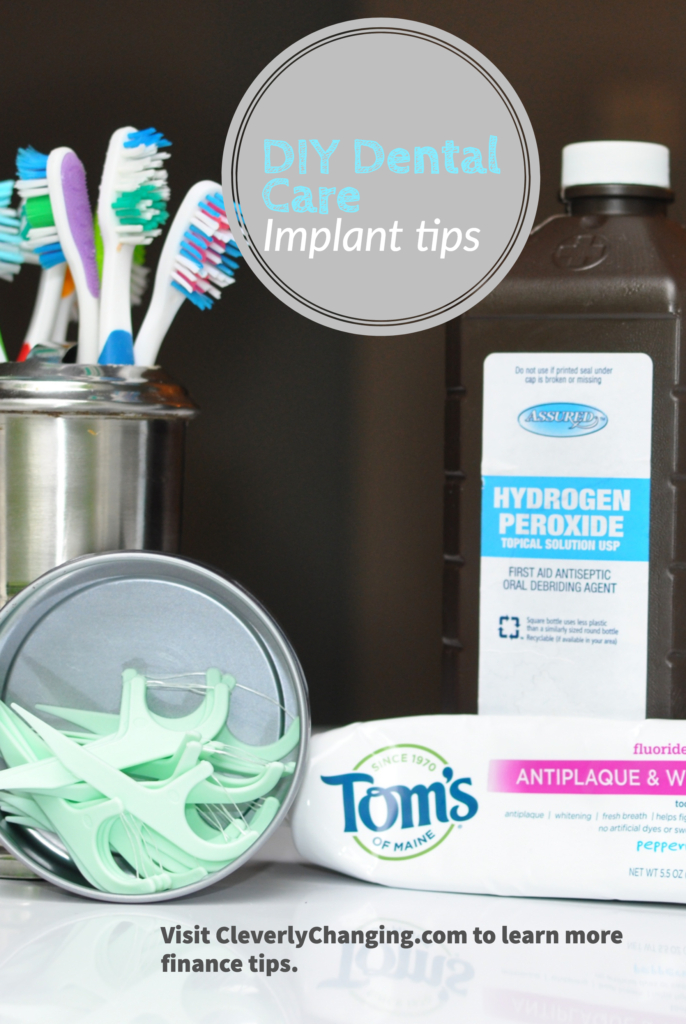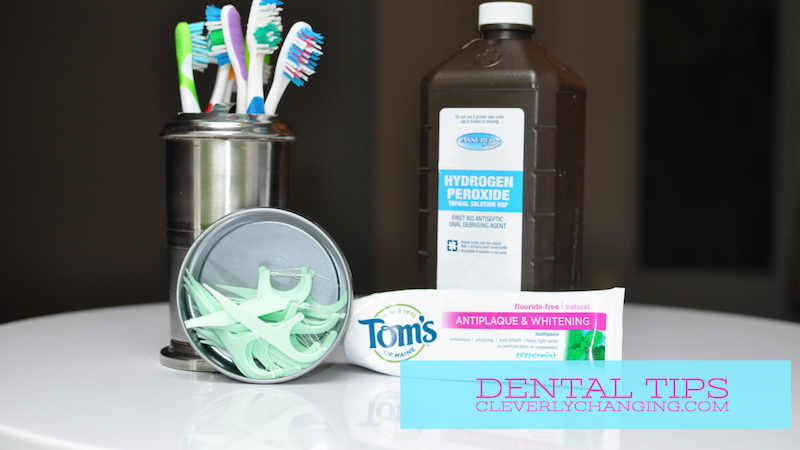In one of my recent posts “5 Ways To Get Summer Ready” I talked about changes that are taking place as I grow older. Another change that has happened in my life is that my mom has grown older. I can’t believe she is 80 now, I love that I still have her with me, but my aging mom needs different care than she 10 years ago. She doesn’t move as quick and isn’t as social as she use to be. One of the reasons why is that her teeth are also aging. My mom needs dentures, and I feel like now is the time for me and my sisters to learn more about dental implants and how to care for artificial teeth. The idea around it isn’t sexy, but the information is good to know.

DIY Dental Implant Care Tips
Dental implants are artificial teeth which are screwed into the patient’s jaw, usually with titanium screws. That might sound painful, but I can assure you it’s nothing to worry about. In the hands of a good dental professional, your discomfort will be minimal.
Implants are becoming more popular than ever thanks to their convenience. With over 2/3rds of adults suffering a lost tooth by their 40’s, the number of people who may seek an implant is huge. Implants have a number of advantages, ranging from the option to fill single missing teeth without harming the surrounding teeth, to their incredibly long lifespan (lifetime of the patient, with proper care).
Having recently worked with many people who had dental implants in Toronto, I have realized one of the areas where knowledge is lacking is aftercare. For those who have gone this route or are considering it in the near future, here are some great tips for looking after your new implant(s):
Use a Low Abrasive Toothpaste
Toothpaste contains abrasive materials which help to scrub your teeth clean by literally scrubbing stains and plaque off the surface of your teeth. This is usually great, but with implants it can be a problem. You don’t want to scratch your implants with these abrasives though, because implants behave a little differently to normal teeth. Scratching them can leave areas for plaque and grime to build up, causing damage to the implant over time.
Gentle Brushing
Likewise, you should now be using a softer toothbrush to protect the implant. Combined with a gentler action, your new tooth/teeth should be well looked after and last for a long time. You should also be brushing at least twice a day with these methods to best protect those implants.
Floss
Flossing is another great way to keep your oral hygiene at a high level. Using floss or interdental brushes is safer for implants than regular brushing. They also help to keep your mouth cleaner than just brushing, whether you have implants or not, so it’s a great habit to get into.
Avoid Fluoride
Lost teeth have a whole host of problems associated with them, including mental health issues. One of the common mistakes made by patients is to use too much fluoride, both in toothpastes and mouthwashes. Fluoride can wear away the protective oxide layer of your implant. Losing this layer leaves the implant open to all sorts of damage. Obviously, the best way to avoid this is to avoid fluoride as much as possible. Check the ingredients on your oral hygiene products and always go with the low fluoride versions.
Regular Dental Check-ups
The simplest way to look after your implant is regular dentist visits. This doesn’t just mean the scheduled aftercare your dentist provides, it means staying on top of your regular check-ups and making a point of following the given advice. A dental professional can spot signs of damage early on and can give much more specific recommendations for implant care, based on your specific needs. Follow their advice to make the most of this knowledge, and your implant could be one of those which lasts a lifetime!
Please share this post with others

Reader Question:
What are some new lessons you’re learning to help someone in your life who is aging?


